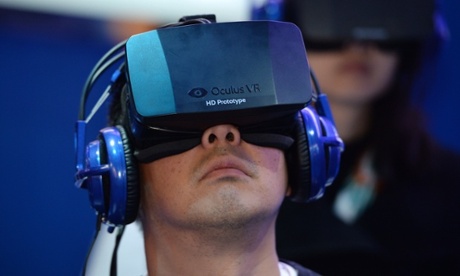
The news that Facebook is buying the Kickstarter-funded virtual reality company, Oculus Rift (OR), is being hailed by some as a major step forward for the gaming industry. Indeed, coming on the heels of Sony's announcement that it too is developing a virtual reality headset called Morpheus, it's not hard to see why the OR acquisition is being cast purely in terms of video gaming.
However, Facebook's move - essentially signalling the arrival of virtual reality into mainstream digital life - will have far greater implications for business in general and sustainability in particular.
Oculus Rift may still only be in the development stage (a consumer headset is not expected to be released until early 2015) but, already, brands and digital agencies are licking their lips at the various immersive marketing experiences they can serve up.
Imagine if you are a travel or tourism brand? Who needs a glossy brochure or website if you can actually take prospective holiday makers on a virtual reality teaser of their dream destination? What about property developers? Model homes are great but somewhat limited in scale and access. An Oculus Rift journey can deliver a virtual tour of new homes that will consign to the digital scrap heap the current 3D views offered by estate agents. And imagine what the automobile industry will conjure up once they get their hands on this technology.
In Australia, NMRA Insurance recently mocked up an Oculus Rift demonstration of a car crash to discourage dangerous driving - the first such test of its type. The "tester" sat in a real car and wore an Oculus Rift headset that created a complete 3D simulation of the car. The car, in turn, was linked to a hydraulic system moving the car in sync with the virtual movements of Oculus Rift. "Getting people to understand what happens in a crash, obviously 3D technology was the one that was going to work best," NRMA head of research, Robert McDonald, told Techworld Australia.
If this sounds a little over enthusiastic for a technology that is still in development it's because I've already seen what Oculus Rift can do when applied within the workplace and for promoting sustainability. Working with Atticus Digital, a digital agency, my consultancy is developing an Oculus Rift virtual reality sustainability training package for one of Europe's biggest energy companies.
Working from its sustainability handbook for employees we have created a series of virtual reality journeys and experiences to help employees understand why sustainability is crucial for the business, society and the planet. When fully completed employees will be able to access the sustainability training from dedicated Oculus Rift stations, put on the headset and embark on a journey where they come to experience and understand the impact of issues like excess waste, irresponsible supply chains, deforestation and overconsumption.
It's a long way removed from making employees sit through a full day of lectures or delivering death by Powerpoint. Virtual reality is proving to be an effective way of engaging and educating employees. As we learn more, we're starting to develop immersive learning experiences that can help in health and safety, risk management and even safer energy exploration.
Of course, as with any new technology, Oculus Rift is only as good as the creativity and storytelling that goes into making it come alive. After all it's just a virtual reality platform and may not stand the harsh test of the technology marketplace. But, as we've learnt over the last decade with the rise and fall of social media companies like Friendster and MySpace, companies can come and go but the new way of living online that those companies epitomise endures.
Facebook is betting that virtual reality will be another of those new ways of living online. We think it will also be a big part of how we work.
Matthew Yeomans is the founder of Sustainly, a consultancy providing a bridge between sustainability and marketing
Join the community of sustainability professionals and experts. Become a GSB member to get more stories like this direct to your inbox

